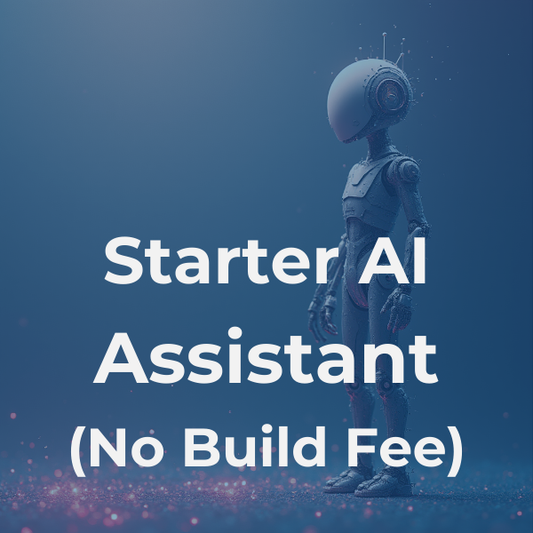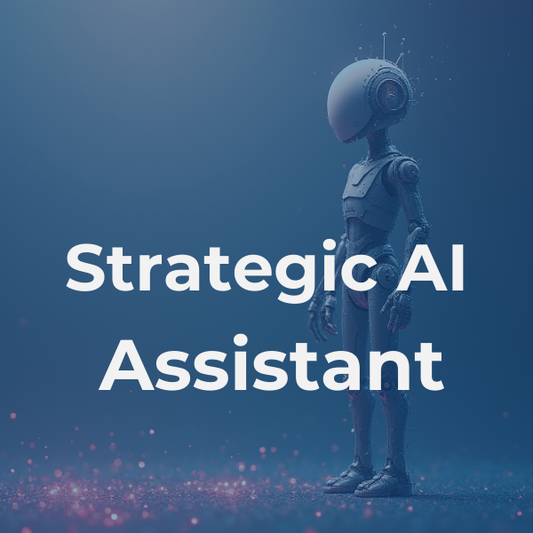
Win Generative Search Results with Niche Keywords
TL;DR
Generative search (powered by AI) is changing SEO. It understands intent and provides conversational answers.
Small businesses have an edge: Use niche keywords (specific, long-tail phrases) to target your ideal customer.
Think like your customer: What questions do they have? Use those as keywords.
Optimize for AI:
- Structure your content with clear headings and concise language.
- Use schema markup to help AI understand your content.
- Create content clusters to show expertise.
Build trust: Highlight your credentials and cite reputable sources.
Adapt to change: Monitor how search results evolve and adjust your strategy accordingly.
Tools to use: SEMrush, Ahrefs, Ubersuggest, Google Search Console, etc.
The bottom line: You can win in the age of generative search by understanding your audience, creating valuable content, and speaking the language of AI.
The search landscape is changing. Have you noticed? Forget simple keyword matching – generative search is here, and it's rewriting the rules of SEO. This presents a unique opportunity for small businesses to leverage niche keywords and capture the attention of LLMs and AI-powered search engines.
Generative search, fueled by advanced AI like ChatGPT and Google's Gemini, goes beyond traditional search by understanding the intent behind your query and providing comprehensive, conversational answers. This means your website needs to be more than just keyword-rich; it must demonstrate expertise and provide valuable, in-depth information.
This article is your guide to mastering niche keywords to get indexed and shown on generative search. We'll explore how to identify these valuable terms, optimize your content for AI understanding, and adapt to the evolving search landscape to achieve sustainable growth.
Understand the Generative Search Landscape
Before starting keyword research, it's crucial to grasp how generative search revolutionizes SEO. Generative search employs sophisticated AI to comprehend the subtleties of language, context, and user intent. This technology is changing the way search engines operate.
Search queries are increasingly conversational, mimicking the way people naturally speak. This shift affects how keywords should be approached.
As a result, search results are now more likely to offer direct answers, summaries, and interactive experiences. This evolution in search results demands a new approach to SEO.
This shift means your website must be optimized for human users and AI algorithms.

Image source: ChatGPT
Discover Your Niche in the AI Era
Define Your Expertise:
Identify your niche: What specific area does your business excel in? What unique knowledge or skills do you offer? Example: A small business specializing in sustainable gardening practices might focus on topics like organic composting, rainwater harvesting, and native plant selection.
Understand your audience: Who are your ideal customers? What are their specific needs and challenges within your niche? For example, the gardening business might target environmentally conscious homeowners, urban gardeners with limited space, or people interested in growing their food.
Unearth Niche Keywords:
Think like your customer. What questions would your ideal customer ask about your niche? Use those questions as a starting point for keyword research.
Example: "How to compost at home," "Best vegetables for small gardens," and "Drought-tolerant plants for my region."
Embrace long-tail keywords: Focus on longer, more specific phrases that reflect user intent and address particular needs. Long-tail phrases are often overlooked because they are less attractive than seed keywords, but they convert better and communicate intent.
Example: "How to build a raised garden bed for beginners," "Best organic fertilizer for tomato plants," and "Water-wise landscaping ideas for small yards."

Image source: Ubersuggest
Utilize AI-powered keyword research tools:
SEMrush: Provides in-depth keyword data, including search volume, keyword difficulty, and SERP features.
Ahrefs: Offers comprehensive competitor analysis and keyword research capabilities.
Ubersuggest: A free SEO tool for researching keywords, analyzing competitors, performing site audits, and more.
MOZ: A leading provider of SEO tools highlights the importance of keyword research in enhancing online visibility and search engine rankings.
Analyze Search Intent
Look for the motivation behind the search. People generally search for a specific goal, so go beyond simply identifying keywords and understand their motivation.
Informational intent: Users seeking information or answers to questions.
Navigational intent: Users are looking for a specific website or resource.
Transactional intent: Users are ready to make a purchase or take action.
Ensure You Speak the Language of AI
On-Page Optimization for Generative Search:
Structure your content: Use clear headings, subheadings, and bullet points to make your content easy for AI to understand and extract essential information.
Use concise language: Avoid jargon and complex sentence structures. Write clearly and concisely for both humans and AI.
Optimize for featured snippets: Structure your content to answer common questions concisely, increasing your chances of appearing in featured snippets and AI-generated summaries.
Implement schema markup: Use schema markup to provide context and structure to your content, helping search engines understand the meaning and relationships between different elements.

Image Source: Hubspot (reviewing tavcotech.com)
Entity Optimization:
Beyond keywords, generative search understands entities - the people, places, or things involved in your content. Help AI grasp these relationships by:
Using clear and consistent language: Refer to entities by their full name initially, then use pronouns or variations later.
Linking to relevant resources: Link to authoritative sources to provide context for entities.
Using structured data: Implement schema markup to explicitly define entities and their relationships.
Create Content that AI Likes
Go deep: Provide comprehensive and in-depth information on your niche topics. Generative search favors content that demonstrates expertise and authority.
Answer questions: Anticipate your audience's questions and provide concise answers. This aligns with the conversational nature of generative search.
Use visuals: Incorporate images, videos, and infographics to enhance understanding and engagement.
Boost your content's E-A-T (Expertise, Authoritativeness, Trustworthiness):
Showcasing your credentials: Highlight your qualifications, experience, and awards.
Citing reputable sources: Back up your claims with data and research from authoritative sources.
Building high-quality backlinks: Earn links from trusted websites in your industry.
Maintaining a positive online reputation: Encourage positive reviews and testimonials.
Content Clustering:
Demonstrate your expertise by creating content clusters. This involves choosing a core topic. To do this, select a broad topic within your niche. Link supporting pages to the primary pillar page to showcase depth and breadth of knowledge, boosting your topical authority.

Image source: Hubspot Topic Clusters
Adapting to the Evolving SERPs:
Monitor changes: Observe how search results pages evolve with AI-generated summaries, interactive features, and dynamic content.
Experiment and adapt: Test different content formats and optimization strategies to see what works best in the age of generative search.
By embracing these strategies, small businesses can leverage the power of niche keywords to survive and thrive in the era of generative search.
It's about understanding your audience, creating valuable content, and speaking the language of both humans and AI to achieve sustainable organic growth.
Source references: Ubersuggest, Ahrefs, Semrush, Moz

About Kevin Vaughan
Kevin Vaughan is the founder of KTV Digital, where he helps businesses bridge the gap between AI-powered research and website-based purchasing decisions.
After 25 years of leading sales and marketing in B2B technology, Kevin noticed that his prospects were arriving at conversations already educated and comparison-ready, having researched through ChatGPT, Claude, and Perplexity, rather than Google. While businesses were still optimizing for search engines, their customers had moved on to AI tools.
This insight drove Kevin to understand how AI tools make recommendations and how businesses can optimize for all three phases of the modern buyer journey.
When he's not testing AI citation patterns or conversion strategies, you'll find him with his wife and kids, playing guitar, or scuba diving.
No comments

















0 comments